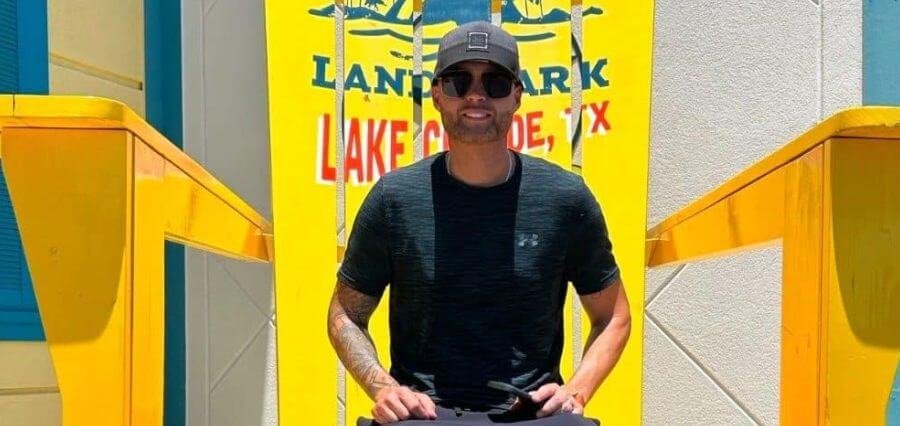stands at the forefront of a movement to reshape affordable housing in America. As an entrepreneur and real estate developer, he has carved a path focused on transforming mobile and RV parks into vibrant tiny home communities. His work blends innovation with a deep dedication to community, driven by personal experiences that have shaped his mission to create lasting change.
“During challenging times, I stay motivated by keeping my long-term vision in mind,” Pilkey says. “I focus on the impact my work is having on creating affordable and sustainable housing solutions.” His drive stems from a desire to address the housing crisis head-on, offering practical alternatives that prioritize stability and opportunity for residents.
His approach to real estate stands out for its emphasis on community over profit. Pilkey sees tiny home communities as more than just housing; they’re spaces where people can build stable lives. His work addresses a critical issue in today’s housing market: the growing gap between housing costs and income levels that has left many Americans struggling to find affordable places to live.
This crisis touches communities across the country, from major metropolitan areas to smaller towns and rural regions. By focusing on tiny home communities, Pilkey offers an alternative that significantly reduces housing costs while maintaining quality of life. His projects reflect a belief that everyone deserves a place to call home, regardless of their financial situation.
A Vision Rooted in Experience
Micah Pilkey’s path to real estate development began with a hard-earned lesson in resilience. His time in federal prison forced him to confront his past and rethink his future. Rather than letting that experience define him negatively, he emerged with a renewed sense of purpose.
“The best way to predict the future is to create it,” Pilkey says, quoting Peter Drucker, a mantra that has guided him ever since. “I’m focused on creating communities that foster stability and opportunity, not just building properties.”
After prison, Pilkey turned to real estate as a way to rebuild his life and make a difference. He saw an opportunity in the growing demand for affordable housing and began exploring ways to meet that need. His focus on tiny home communities came from a realization that traditional housing models were failing many Americans. By repurposing mobile and RV parks, he found a way to create sustainable, accessible communities that align with his values of hard work and ethical entrepreneurship.
His early projects were small but they laid the groundwork for his larger vision. Pilkey’s ability to adapt and learn from setbacks has been key to his success, allowing him to tackle complex projects that others might shy away from. His ability to learn from each project has allowed him to refine his approach, making each new community better than the last.
Pilkey’s commitment to ethical entrepreneurship sets him apart in an industry often driven by profit. He prioritizes long-term value over short-term gains, ensuring his developments benefit both residents and the broader community. This philosophy has earned him trust among stakeholders, from residents to local governments.
Overcoming Industry Challenges
The road to creating tiny home communities is not without obstacles. “One of the biggest challenges we face is navigating zoning and regulatory restrictions, which can slow down the process of converting RV parks into tiny home communities,” he says. These rules vary widely by region, requiring careful planning and negotiation to move projects forward.
Securing financing is another hurdle. “Securing financing for these types of projects can be tricky due to the relatively new concept, which sometimes makes investors hesitant,” he says.
Pilkey often finds himself educating potential backers about the long-term value of these developments. “Educating the public and investors about the long-term value of tiny home communities is a constant process,” he says. Despite these challenges, he remains optimistic, driven by the growing demand for alternative housing solutions.
Pilkey believes the industry is on the cusp of change. “I believe that in the next 5-10 years, we will see a significant increase in demand for alternative housing solutions, particularly tiny home communities,” he says. As housing costs continue to rise, he expects more developers to embrace models like his, creating opportunities to scale these projects and make them more mainstream. His forward-thinking approach positions him to lead this shift, as he continues to innovate and adapt to changing market needs.
Micah Pilkey’s Landmark Achievement in West Texas
One of Micah Pilkey’s proudest moments came with the completion of a major project in West Texas. He successfully converted a large RV park into a thriving tiny home community, a feat that required overcoming numerous obstacles. “It was a complex project,” he says. “But seeing it come to life and knowing it provides affordable, sustainable housing for many people has been incredibly rewarding.”
The West Texas project stands as proof of Pilkey’s vision and tenacity. It involved navigating regulatory hurdles, securing financing and coordinating with local stakeholders, all while ensuring the community met the needs of its residents. The result is a vibrant neighborhood where people can live affordably without sacrificing quality. For Pilkey, the project’s success is measured not just in financial terms but in the stability it offers to those who call it home.
The success of this project has inspired him to pursue similar initiatives elsewhere, with plans to replicate the model in other regions facing housing shortages. This achievement has also strengthened Pilkey’s reputation as a developer who can deliver on ambitious goals.
Micah Pilkey Embraces Sustainable Living
Sustainability is at the heart of Micah Pilkey’s work. He’s excited by the growing interest in environmentally friendly communities, a trend that aligns closely with his goals. “One trend that excites me is the growing interest in sustainable living,” he says. “The shift towards environmentally-friendly communities, such as tiny homes and energy-efficient developments, aligns perfectly with my values.”
His tiny home communities are designed with sustainability in mind, incorporating features and layouts that minimize environmental impact. These developments appeal to a growing number of people seeking to reduce their carbon footprint without compromising on comfort. Pilkey sees this trend as an opportunity to expand his work and inspire others in the industry to prioritize sustainability.
Pilkey’s commitment to sustainability extends beyond his projects. “I spend time learning about new sustainable technologies and developments in the housing industry,” he says. This dedication keeps him informed about emerging innovations, ensuring his communities remain at the forefront of the industry.
His city provides an ideal setting for these efforts. “I live and work in a community that is growing rapidly, with a lot of potential for innovative housing solutions,” he says. “There’s a strong desire for sustainable living, making it a perfect environment for my business to thrive.” The region’s affordability and growth potential create opportunities to test new ideas and scale successful models.
In his free time, Pilkey enjoys playing pickleball, a hobby that keeps him connected to his community. The sport offers a way to unwind while maintaining the community ties that are central to his work and values.
Giving Back and Looking Ahead
For , business success and social impact are inseparable goals. His work extends beyond property development to include advocacy and support for those facing barriers to reintegration after incarceration, a cause with personal significance given his own experiences.
He partners with nonprofits to support reintegration programs, helping former inmates find stability and purpose. He understands the challenges of rebuilding a life after prison and uses his platform to create pathways for others.
He also shares insights with those looking to enter the real estate industry. “My advice would be to stay curious and continuously educate yourself on emerging housing trends and regulations,” he said.
He also wishes he had focused more on networking earlier in his career. “If I could start over, I would focus more on networking early in my career,” he reflected. His journey taught him the value of collaboration and he encourages others to build strong professional relationships, as it is critical to overcoming industry challenges.
As his work continues to demonstrate the viability of alternative housing models, Pilkey helps create conditions for broader adoption across the industry. By proving these approaches can work at scale, he contributes to a gradual shift in how developers, regulators and consumers think about housing options.
This potential for systemic impact represents perhaps the most significant aspect of Pilkey’s work. Beyond the direct benefits to residents of his communities, his success helps expand the conversation about housing solutions, creating space for innovative approaches that might otherwise be dismissed as impractical or niche.
Through determination and vision, Pilkey has transformed personal adversity into purpose-driven entrepreneurship. His tiny home communities stand as physical manifestations of a philosophy that values both innovation and impact, creating futures better than what might have been predicted for both himself and the residents he serves.
Credit: insightssuccess.com











